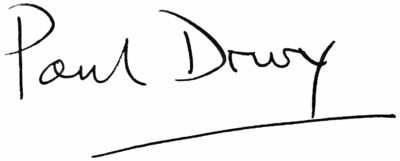Three years ago, I thought that the major challenges facing the Society, early in its fourth century, were to settle the question of whether we could remain at Burlington House in the face of rapidly escalating rent, and the essentially static size of the Fellowship with an aging demographic profile. These, the first urgent, the latter insidious, regrettably remain the major challenges for my successor.
New challenges arose. A motion to amove a Fellow found by a court to have committed acts against a child was lost at a general meeting, exposing us to negative press and social media comment. The affair highlighted the lack of an effective means of addressing ethical misconduct by Fellows, nowadays essential for a charity operating under Royal Charter, bestowing public honour through election to the Fellowship. Subsequently a vote of the entire Fellowship overwhelmingly approved changes to our Statutes to establish an Ethical Conduct Body, now fully constituted.
Long before that vote, the Covid-19 pandemic reached the UK. Burlington House was closed, and staff switched to working from home as all our worlds suddenly became virtual. But live streaming brought us a vastly larger, international, audience for our lectures and conferences. The challenge going forward is to cultivate that audience, but not lose sight of the added value of live participation in the room once this becomes possible. The library made great strides in adding digital resources and, ironically aided by the lack of readers, switched to the new platform for our library and collections catalogues far more quickly than would otherwise have been achievable. This is the essential foundation on which to expand digital access to our resources; the challenge now is to upgrade and expand the collections and archive database to modern standards.
The building contract for our project Kelmscott and Morris Past, Present and Future was initially halted, but soon resumed at a reduced pace. The quality of work has been sustained, but Kelmscott will reopen a year later than envisaged, with the loss of a year’s revenue and of our intended Treasures of Kelmscott exhibition at Burlington House.
Overall, the impact of the pandemic on the Society’s activities has so far been mixed; losses, of course, but also innovations, accelerated technological progress and dramatic audience development. Thanks to the flexibility and commitment of our staff, we have seen that the Society is resilient, able to seize opportunities and respond effectively to drastic changes of circumstance.
Our enforced absence from Burlington House also brought perspective to our relationship with the place. Three years ago, the prospect of being forced out by the escalating rent was seen almost as an existential threat to the Society. Our image is, for many Fellows, synonymous with the building which has been our home for almost 150 years. With significant capital investment it could be adapted to modern needs, insofar as its listing allows, but it will always be functionally sub-optimal in every respect save its central location in Mayfair.
The Burlington House question – stay or go- has distracted our energies and consumed our resources for far too long. Our negotiations with our government landlords have moved slowly and inconsistently. If, despite our best and final efforts through the current public campaign, the government will not come to an agreement that reflects the public value and potential of the co-located learned Societies and their collections, as well as the value of Burlington House to the Societies, then we must move, and do so by 2025. Contingency planning for this is well advanced. Otherwise, we will become the proverbial boiled frogs, our capital eroded, our ambitions, energy and resources drained and constrained by a tired and dysfunctional, but increasingly expensive, building.
Establishing a membership scheme, agreed in principle by Council three years ago, was delayed because we felt that Burlington House was key to the ‘offer’, hence our future there had to be settled as a precondition. Our experience in the pandemic has demonstrated that our core appeal is intellectual access to our resources, through lectures, conferences, the library and collections, our publications, and of course our Fellows. We need to try to sustain our hard-won on-line following, build on it through affiliate membership, and grow the Fellowship in real terms, and within the charter criterion of ‘excellence’ address our lack of diversity in the process. We must invest in growth to ensure our relevance and our viability into the future and counter the demographic time-bomb of our current Fellowship profile. And we must continue to speak strongly to try to influence public policy as a major actor, and provide an independent forum for public debate, as we are doing, for example, by our manifesto The Future of Archaeology in England.

Paul Drury Hon VPSA,
Former President of the Society of Antiquaries of London